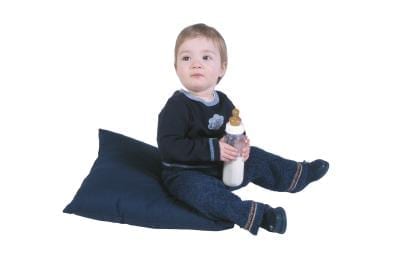Milk allergies are one of the more common food allergies seen in infants and children. Between 2 and 3 percent of babies are allergic to cow’s milk formula, according to KidsHealth. If you breastfed exclusively until your child took his first steps and graduated to toddler-appropriate food, his milk allergy may have flown under your radar.
Milk Allergy Facts
If your toddler has a milk allergy or other food allergy, his immune system is to blame. When a child has an allergy, the immune system identifies the protein in milk as a dangerous intruder that needs to be attacked. The body releases histamines, which are responsible for your child’s allergic symptoms. Children who are allergic to cow’s milk are often allergic to goat’s and sheep’s milk. Some are even allergic to soy milk.
Symptoms
Your toddler’s milk allergies can be mild to severe and anything in between. Allergies can affect the nose, eyes, skin and gastrointestinal tract. Signs and symptoms of a milk allergy may include raised welts on the skin called hives, nausea and vomiting, diarrhea, wheezing and coughing, runny nose and eyes, and a red rash around the mouth. Milk allergies can result in anaphylaxis, which is a life-threatening allergic reaction; however, this doesn’t occur too frequently.
Onset
The onset of a milk allergy varies from child to child. Signs and symptoms can present mere minutes after your toddler drinks milk or a few hours after. The first signs of milk allergies are typically wheezing, vomiting and an eruption of hives on your child’s skin.
Lactose Intolerance
Parents may confuse milk allergies with lactose intolerance, a condition that results in similar symptoms, notes the American Academy of Pediatrics. If your child has lactose intolerance, she has difficulty digesting lactose, or milk sugar. However, lactose intolerance affects only the digestive tract, causing bloating, tummy ache and diarrhea. Most infants and younger children don’t suffer from lactose intolerance — it’s more common in older children and adults.
Tips
Most children outgrow milk allergies by the time they’re 3 years old, notes KidsHealth. Babies who are breastfed are less likely to develop milk allergies. If you suspect that your child has milk allergies, you should take him to an allergist, preferably when the signs and symptoms are present. The best way to prevent your child from experiencing a milk allergy is to avoid giving him milk and all foods that use it as an ingredient.





